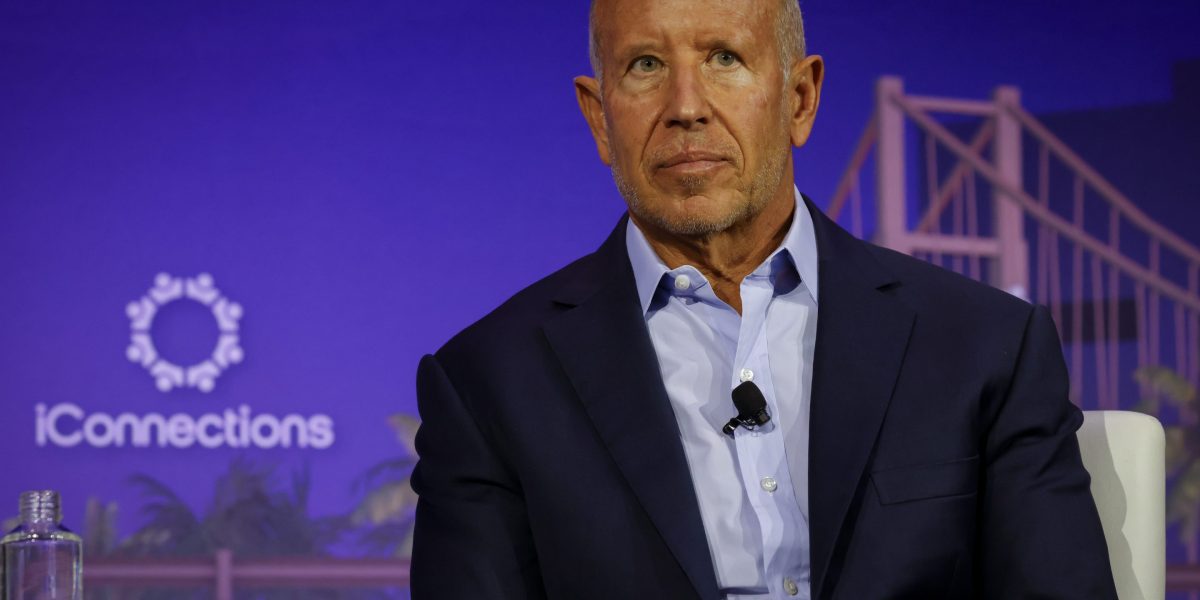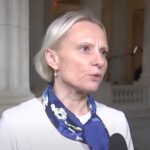

Starwood Capital Group’s chief executive and chairman doesn’t seem to be a fan of the Federal Reserve. The billionaire behind the real estate investment firm, Barry Sternlicht, has mocked and blamed the institution and its chair, Jerome Powell, on several occasions. Sternlicht once referred to the Fed as “Jay Powell and his merry band of lunatics” in an interview with Fortune, claiming there would be “social unrest” because of its monetary tightening. On another occasion, he called the Fed’s interest rate hikes “self-inflicted suicide.” Of course, some of his angst could have to do with the impact rate increases may have had on his own business, which has invested in and managed billions in real estate assets during the past three decades
In an interview with CNBC yesterday, Sternlicht didn’t change his tune, although he was less colorful. “This is my problem with Powell,” he said: “His policy has now crushed multifamily starts; we need houses.”
Sternlicht continued: “So with only 220,000 houses coming in [2026], I will guarantee you rents will go up in ’26, unless there’s a massive recession.” Essentially, he’s suggesting that fewer apartments will be built in the coming years because of increased cost and risk, which then means rents will go up because it’ll only worsen an already existing housing shortage. The country is missing millions of homes, and that’s partly why home prices haven’t fallen, despite skyrocketing mortgage rates and depressed sales activity.
Rents, which rose along with home prices throughout the pandemic-fueled housing boom, have sort of flatlined. But, in some places, they’ve dropped because of a recent boom in multifamily construction: According to Redfin, “the Sunbelt is seeing some of the biggest rent declines in America.”
“The Sunbelt has built a ton of new apartments in recent years, partly to meet the surge in demand brought on by the flood of people who moved in during the pandemic housing boom. But the boom is over, and now property owners are struggling to fill vacancies, which is causing rents to fall,” Redfin senior economist Sheharyar Bokhari said last month. “The good news is that the uptick in housing supply in the Subelt has improved affordability for renters, which can be a lesson for other American cities grappling with housing affordability challenges.”
Still, some suggest this is a temporary phenomenon, similar to what Sternlicht is arguing. And again, this weakness in multifamily homes isn’t great for investors, who are often blamed online for the housing crisis. But it is good for typical Americans.
When the Fed began raising interest rates to tame inflation, it sent a shock to commercial and multifamily real estate. Values that rode the money waves of the pandemic plummeted, and loans are maturing in an environment where rents have cooled off and interest rates are much higher.
There could be more pain ahead for all commercial real estate, and it still feels as though the entire sector is at a standstill. “Transaction volumes across the world are still down 70%,” Sternlicht said. “There are no trades. So the only one who’s trading is a mortgage coming due, and if they can’t find somebody to rescue them, they’ll sell it.” And banks don’t want a non-performing mortgage, so they sell, too, he said, referring to short sales.
Every time there’s a crisis, said Sternlicht, there’s a disconnect in what buyers are asking for and what sellers want. Sellers want to bargain and buyers want yesterday’s prices, Sternlicht explained. But that gap has shrunk. “The spreads are coming in, which means the markets are healing—the future is getting clearer, particularly for apartments,” he said.















